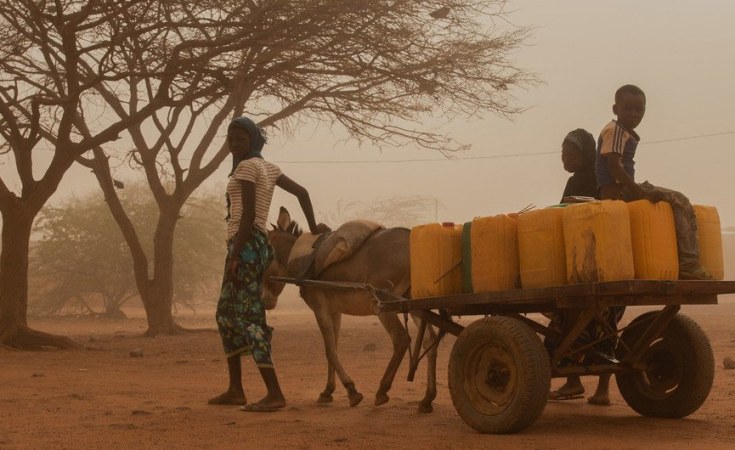The International Monetary Fund has announced the release of $80 million in emergency aid to Burkina Faso to help it cope with a food crisis aggravated by the war in Ukraine.
The aid will "help support measures to provide emergency assistance to acutely food-insecure households" in Burkina Faso said Martin Schindler, head of the International Monetary Fund (IMF) mission following a week-long visit to the West African country.
The financing - agreed between the IMF and Burkina Faso authorities - will allow for the distribution of food and drinking water, subsidised agricultural inputs, and cash transfers to eligible households.
"The food crisis that was already affecting the country has indeed worsened after the war in Ukraine and requires immediate humanitarian and budgetary assistance," Schindler said in a statement.
The IMF says 2.6 million people are acutely food insecure in the country, and without aid measures, 3.5 million people could be affected - 16 percent of the population - according to the UN Food and Agriculture Organisation (FAO).
Hunger is also soaring as a result of increasing jihadist violence which has killed thousands and displaced around two million, preventing them from farming.
Aid organisations say one in 10 people have been displaced by conflict.
Burkina's interim government came to power following a military coup last September vowing to tackle the insurgency, but has failed to reign it in.
Food Shock Window
The $80 million funding (50 percent of Burkina Faso's IMF quota) still needs to be approved by the Fund's Executive Board.
The aid is being taken through the IMF's Food Shock Window, as part of its Rapid Credit Facility (RCF).
Opened at the end of September for one year, the window is intended to provide countries that request it with rapid access to emergency financing in the event of acute food insecurity, unexpected shocks in cereal imports or a sudden rise in prices.
(with newswires)


